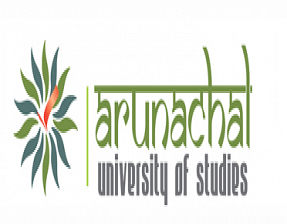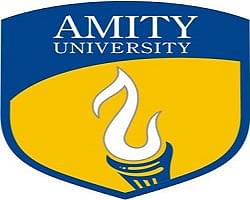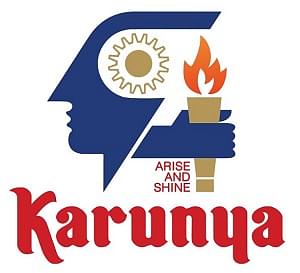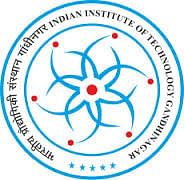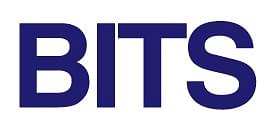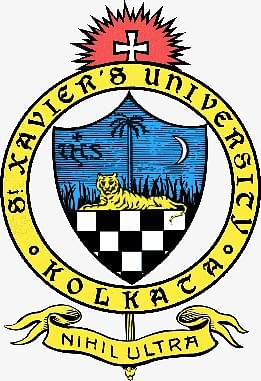Introduction about M. Sc Culinary Arts
M. Sc in Culinary Arts from top college is an advanced degree program designed to provide
students with comprehensive knowledge and skills in the culinary arts,
gastronomy, and food-related industries. It blends practical culinary training
with academic coursework to prepare students for leadership roles in culinary
management, food service operations, hospitality, research, and
entrepreneurship within the dynamic and diverse culinary field.
Program Highlights:
Culinary Skills
Development:
M.Sc Culinary Arts
programs emphasize hands-on training in culinary techniques, including cooking,
baking, pastry, and food presentation. Students learn from experienced chefs
and culinary instructors in state-of-the-art kitchen facilities, gaining proficiency
in fundamental and advanced culinary skills.
Culinary Management
and Entrepreneurship:
The curriculum
typically includes coursework in culinary management, kitchen operations,
financial management, marketing, and entrepreneurship. Students learn how to
manage culinary establishments effectively, develop business plans, and
navigate the competitive landscape of the culinary industry.
Culinary Nutrition
and Health:
Students study the
principles of nutrition and dietary science as they relate to culinary arts.
They learn about the nutritional composition of foods, dietary guidelines, menu
planning for health and wellness, and special dietary considerations, preparing
them to create nutritious and balanced culinary offerings.
Food Culture and
Gastronomy:
M.Sc Culinary Arts
programs explore the cultural, historical, and sociological aspects of food and
gastronomy. Students gain an understanding of food traditions, culinary
customs, regional cuisines, and the role of food in society and identity,
fostering a holistic appreciation of culinary arts.
Research and
Innovation:
Many programs
include research components that enable students to engage in culinary
research, experimentation, and innovation. Students may conduct research
projects, experiments, or case studies, contributing to the advancement of
culinary knowledge and practices.
Industry
Connections and Internships:
M.Sc Culinary Arts
programs often have partnerships with culinary establishments, hotels,
restaurants, and hospitality organizations, providing students with
opportunities for internships, externships, and industry placements. These
experiences allow students to apply classroom learning in real-world settings
and build professional networks.
Career Opportunities:
Graduates of M.Sc
Culinary Arts programs are prepared for diverse career paths in the culinary
field, including:
Executive Chef or
Sous Chef in restaurants, hotels, resorts, or catering companies.
Culinary Manager or
Food and Beverage Director in hospitality establishments.
Culinary Educator
or Instructor in culinary schools, colleges, or vocational training centers.
Food Entrepreneur,
such as opening their own restaurant, bakery, catering business, or food
product company.
Food Stylist, Food
Writer, or Culinary Consultant in media, publishing, or food industry.
What is admission process for M. Sc Culinary
Arts ?
The admission process 2024 M. Sc in Culinary Arts can vary depending on
the institution offering the program. However, here is a general outline of the
typical steps involved:
1. Research Programs and Institutions:
Identify
universities and culinary schools that offer M. Sc programs in Culinary Arts.
Consider factors such as program reputation, faculty expertise, facilities,
location, and specialization areas.
2. Meet Prerequisites:
Academic Background: Most programs require applicants to have a
bachelor's degree in culinary arts, hospitality management, food science,
nutrition, or a related field. Some programs may accept applicants with degrees
in other disciplines if they have relevant work experience or coursework.
GPA: A strong academic record is typically
required, with a minimum GPA of 3.0 on a 4.0 scale. More competitive programs
may have higher GPA requirements.
3. Work Experience:
Some programs may
require or prefer applicants to have prior work experience in the culinary
industry. This can include experience working in restaurants, hotels, catering
companies, or other food-related establishments.
4. Prepare Application Materials:
Application Form: Complete the university's online
application form or submit a paper application.
Transcripts: Submit official transcripts from all
post-secondary institutions attended.
Letters of
Recommendation: Typically,
2-3 letters from academic or professional references who can attest to your
qualifications, work ethic, and suitability for graduate study.
Statement of
Purpose: A detailed essay
outlining your academic background, professional experience, career goals, and
reasons for pursuing an M.Sc in Culinary Arts. This document should demonstrate
your passion for the culinary field and your alignment with the program's objectives.
Resume/CV: An updated curriculum vitae or resume
highlighting your academic qualifications, work experience, culinary skills,
and any other relevant achievements or certifications.
5. Portfolio (if applicable):
Some programs may
require applicants to submit a portfolio showcasing their culinary skills and
achievements. This could include photographs of dishes you've prepared, menus
you've developed, recipes you've created, or any other relevant work samples.
6. Admission Tests:
Some programs may
require applicants to take standardized tests such as the GRE or GMAT. Check
the specific requirements of the programs you are applying to.
7. English Proficiency:
For non-native
English speakers, proficiency in English must be demonstrated through tests
like TOEFL or IELTS. Minimum score requirements typically range around 80-100
for TOEFL iBT or 6.5-7.0 for IELTS.
8. Application Fee:
Pay the application
fee as required by the university or culinary school.
9. Submission and Follow-Up:
Submit all
application materials by the deadline.
Follow up with the
admissions office to ensure all components of your application have been
received and are complete.
10. Interview (if applicable):
Some programs may
require applicants to participate in an interview as part of the admissions
process. This could be conducted in person, over the phone, or via video
conference.
11. Decision and Acceptance:
Admissions
decisions are typically communicated several weeks to months after the
application deadline.
If accepted, you will receive an offer letter outlining the details of your admission, any financial aid or scholarships offered, and instructions for accepting the offer and enrolling in the program.
What is eligibility for M. Sc Culinary Arts ?
The eligibility criteria for M. Sc in Culinary Arts can vary by
institution, but generally include the following:
1. Academic Qualifications:
Bachelor's Degree: Most programs require applicants to have a
bachelor's degree in culinary arts, hospitality management, food science,
nutrition, or a related field. Some programs may accept applicants with degrees
in other disciplines if they have relevant work experience or coursework.
GPA: A strong academic record is typically
required, with a minimum GPA of 3.0 on a 4.0 scale. More competitive programs
may have higher GPA requirements.
2. Work Experience:
Some programs may
require or prefer applicants to have prior work experience in the culinary
industry. This can include experience working in restaurants, hotels, catering
companies, or other food-related establishments. The required duration of work
experience can vary by program.
3. Prerequisite Courses:
Applicants may be
required to have completed certain prerequisite courses in culinary arts, food
science, nutrition, or related subjects. These courses may include topics such
as food safety and sanitation, cooking techniques, menu planning, nutrition, and
kitchen management.
4. Language Proficiency:
For non-native
English speakers, proficiency in English must be demonstrated through tests
like the Test of English as a Foreign Language (TOEFL) or the International
English Language Testing System (IELTS). Minimum score requirements typically
range around 80-100 for TOEFL iBT or 6.5-7.0 for IELTS.
5. Letters of Recommendation:
Some programs may
require applicants to submit letters of recommendation from academic or
professional references who can attest to their qualifications, work ethic, and
suitability for graduate study.
6. Statement of Purpose:
Applicants are
often required to submit a statement of purpose or personal statement outlining
their academic background, professional experience, career goals, and reasons
for pursuing an M.Sc in Culinary Arts. This document should demonstrate the
applicant's passion for the culinary field and their alignment with the
program's objectives.
Summary:
Eligibility for an
M.Sc in Culinary Arts typically requires a bachelor's degree in a relevant
field, a strong academic record, and possibly prior work experience in the
culinary industry. Applicants should also be aware of any prerequisite courses,
language proficiency requirements, and application materials such as letters of
recommendation and a statement of purpose. It's essential to review the
specific eligibility criteria of each program you are interested in and ensure
that you meet all requirements before applying.
What is syllabus for M. Sc Culinary Arts ?
The syllabus for M. Sc in Culinary Arts can vary significantly depending on
the institution offering the program, its focus areas, and any specialization
tracks available. However, here is a general outline of the components commonly
found in such programs:
Core Courses:
Culinary Techniques
and Skills:
Instruction in
fundamental and advanced culinary techniques, including knife skills, food
preparation methods, cooking methods (such as grilling, roasting, sautéing),
and baking and pastry techniques.
Food Safety and
Sanitation:
Study of food
safety principles and regulations, including proper food handling, storage, and
sanitation practices to prevent foodborne illnesses and ensure consumer safety.
Culinary Nutrition:
Exploration of the
principles of nutrition and their application in culinary arts, including the
nutritional composition of foods, dietary guidelines, menu planning for health
and wellness, and special dietary considerations.
Menu Planning and
Development:
Training in menu
design, development, and analysis, including menu engineering, pricing
strategies, seasonality, sustainability, and consumer preferences.
Gastronomy and Food
Culture:
Examination of the
cultural, historical, and sociological aspects of food and gastronomy,
including food traditions, customs, rituals, and the role of food in society
and identity.
Culinary Management
and Entrepreneurship:
Introduction to
principles of culinary management, kitchen organization, operations management,
financial management, marketing, and entrepreneurship in the culinary industry.
Research Methods in
Culinary Arts:
Training in
research methodologies relevant to culinary arts, including qualitative and
quantitative research methods, experimental design, data collection, analysis,
and interpretation.
Elective Courses (Optional, Depending on Program):
Advanced Culinary
Techniques:
Specialized
instruction in advanced cooking and baking techniques, regional cuisines,
culinary traditions, and contemporary culinary trends.
Food and Beverage
Pairing:
Study of the
principles of food and beverage pairing, including wine, beer, spirits, and
non-alcoholic beverages, with an emphasis on flavor profiles, balance, and
sensory evaluation.
Food Photography
and Styling:
Introduction to
food photography techniques, styling principles, lighting, composition, and
editing for culinary professionals interested in food media and marketing.
Specialty Cuisine
and Dietary Restrictions:
Exploration of
specialty cuisines, dietary restrictions (such as gluten-free, vegan, or
paleo), and alternative culinary approaches to accommodate diverse dietary
preferences and restrictions.
Culinary Internship or Externship:
Industry Experience:
Practical
experience working in culinary establishments such as restaurants, hotels,
catering companies, or food service operations to gain hands-on experience,
apply classroom learning, and develop professional skills.
Culminating Experience:
Capstone Project or
Thesis:
Completion of a
culminating project or thesis under the supervision of a faculty advisor,
demonstrating mastery of culinary knowledge, skills, and research capabilities.
Topics may vary and could include menu development, recipe creation, culinary
research, or a business plan for a culinary venture.





